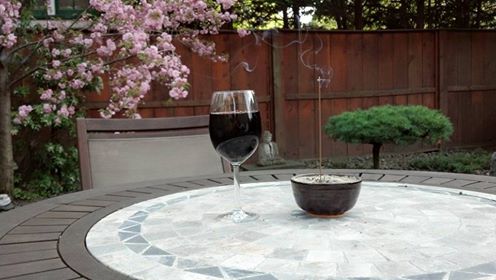Fictitious hero Jesús Zarate is his own man, an outlaw among the timid and a rebel with a cause.
Jesús is make-believe; I made him up.
But Jesús and I share a lot of life in common.
Aikido is the martial art path of peace and harmony we both try to walk on and off the dojo training mat. Aikijujutsu is the combat application of aikido we try to avoid using if at all possible while fighting the quandary that violence is not the answer, until it is. Jesús holds sandan rank, third-degree black belt, in both arts.
So do I.
Jesús works as a renegade daily newspaper columnist until he gets fired. I know the feeling. His publisher tells him he’s a treasure. That’s what a publisher once told me before the corporate children of the corn eliminated my job and let me go.
Jesús fights corruption, dirty cops and crooked politicians every chance he gets. I did, too, for decades until I quit journalism and turned my pen to writing novels.
Yeah, Jesús Zarate and I have a whole lot in common.
Drawing on real life personal experience is how believable fiction is born. Reality helped shape “Blood Red Syrah” from beginning to end, setting up scene after scene to confront social issues that matter to good people everywhere. I wrote columns for decades about twisted human dynamics and the awful, sometimes deadly, way people treated each other.
In my book, the terrible episode of animal brutality at Dope’s Diner came from a now dead former outlaw biker ex-convict who claimed he saw similar abuse in California and swore it was true.
Likewise, Tripper’s married life of domestic abuse that led to her shooting and killing her husband while he slept is based on the tragedy of a woman I wrote columns about many years ago who ended her torture with a bullet to her drunken husband’s head while he slept.
I used to say that if I wrote a memoir I would call the book “Kissed by a Killer” because one day as she left the courtroom she kissed me on the cheek in gratitude for taking her side and trying to understand her story.
American Zen Buddhism plays as significant a role in my novel’s plot as it does in my life. The Buddha’s eyeball never closes in the storyline although the black ink Buddha tattoo on the outside of my upper left arm sits with eyes closed, prepared to awaken at any moment. That’s why I sit zazen meditation every day, as do the Zen monks in the novel.
Yoga soothes the savage Wally. I’ve practiced yoga every day for years. Although I exaggerate the yoga teacher – Tibetty – I do so only because yoga teachers can get carried away with what I’ve come to call “yogababble” that gets in the way of simple authentic practice of breath and movement.
Wally’s humiliation while working as a tasting room attendant at a boutique winery has roots deep in my psyche as well. I’ll never forget the tall, thin L.A. woman who shut down my attempt at professionalism in describing chardonnay during my short time behind the tasting room bar with a dismissive wave of her hand and words that will live in my mind forever.
“More wine, less chat,” she said.
My wife/manager Stephanie and I often laugh – as recently as last night during a comfortable reading in a friend’s home when I told this story – about how Stephanie sometimes uses those fateful words to interrupt another of my stream-of-consciousness tales about life as I see it.
And, of course, the setting for “Blood Red Syrah” is real as real can be. The majestic California Central Coast beckons us to appreciate the splendor Mother Nature has to offer. Mother Nature plays a momentous role in the book. She shapes the moral of the story.
We are animals. We share this planet and nation. We carry deep responsibility to the earth and to each other.
In our personal search for truth, we see the consequences of our behavior – whether we know it or not – for better or for worse. Chasing truth can be hazardous to our health. Finding truth opens our eyes forever to simple parables such as, “More wine, less chat.”
That’s why I sign all copies of my book with the same words: “In vino veritas.”
In wine there is truth.
